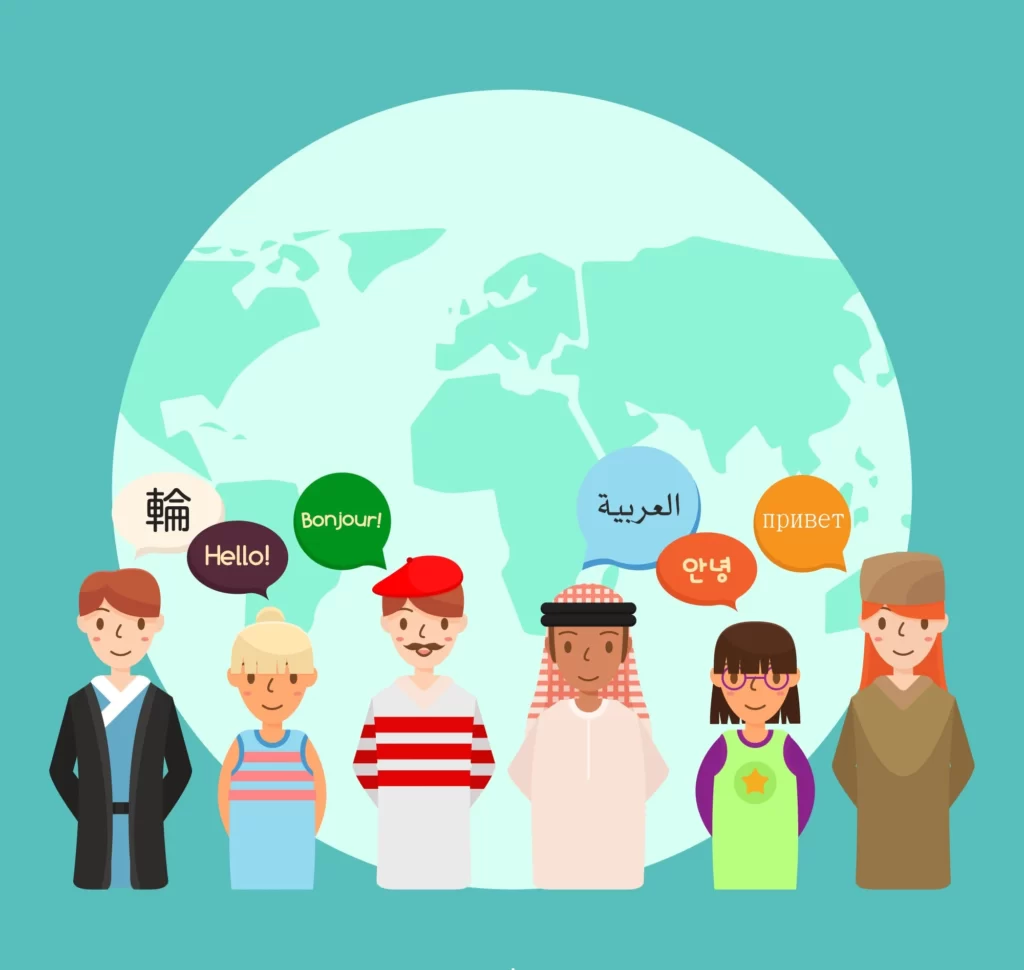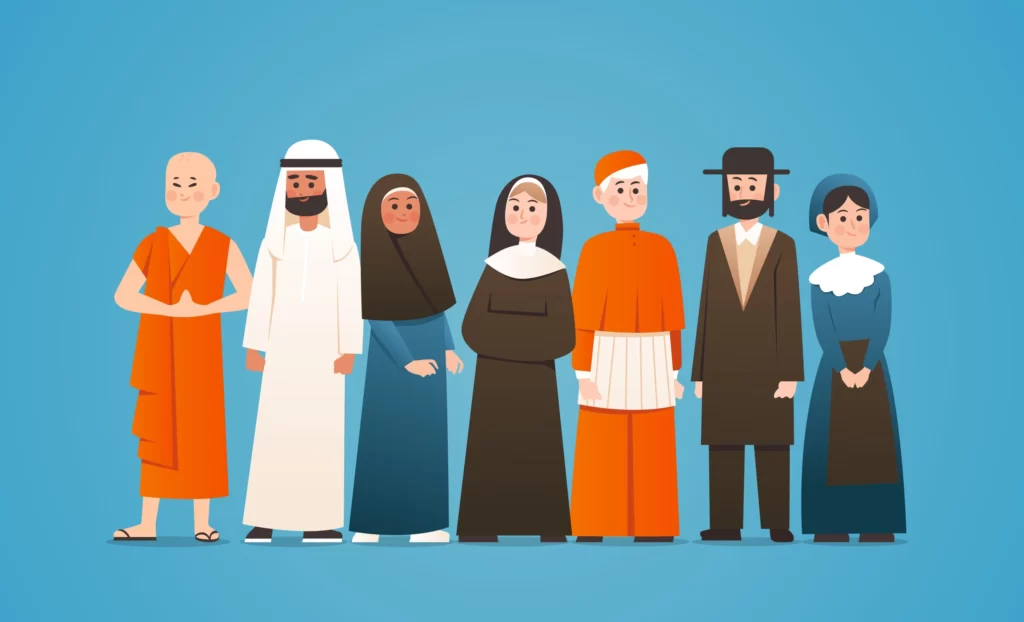Is World Religion a Hard Class? Exploring Beliefs & 10 Reasons You Should Study It

If you want to know more about world religion class, you are at the right place. In this latest post, we will explore:
- Is World Religion a Hard Class?
- 10 reasons why we study religions.
- 11 practical study techniques for world religions.
- Why do they have importance?
- Is it necessary to study it?
And many more that can be helpful for you. So, without any delay, let’s get started.
Key Takeaway
- The difficulty of World Religions class depends on individual interests, prior experience, and the teaching style.
- Religion shapes societies and impacts human interactions.
- For better understanding, utilize study techniques like SQ3R, summarizing notes, and group discussions.
- World Religion classes increase cultural awareness and understanding.
- Studying world religions isn’t necessary, but it can be enriching.
Table of Contents
Is World Religion a Hard Class?
Whether or not World Religion is considered a problematic services like Take My Online Class which depends on your taste and interest, previous experience, and the instructor’s teaching style.
Some students may find the subject matter and the wide range of beliefs challenging to understand. While others may find it interesting and exciting.
Success in World Religions, like any other academic course, often requires dedication, a sense, and a desire to learn about different cultures and faiths.
Need assistance with your Online Religion Class? Simply reach out to us.
150+ ![]()
Qualified Tutors
Impacts of Religion On Society
Religion affects more than just beliefs; it also affects how people interact with one another. Understanding various religions will help you better understand the principles that guide societies and influence how people interact.
Religions are more than just rules and ceremonies. They guide how people treat each other and solve problems. When you learn about different religions, you can understand why people act as they do.
Each religion has its own values that help people live together nicely. Understanding these principles makes it easier to understand why people are kind and compassionate towards one another.
The social interactions and group activities that take place in communities are influenced by religion. You can learn why they celebrate specific events and why they have unique traditions.
Need assistance with your Online Religion Exam? Simply reach out to us.
150+ ![]()
Qualified Tutors
Studying different religions can bring people from other groups closer. You’ll know why they think and act as they do, which can help everyone get along better.
In simple words, religion is about how people live and get along. Learning about different faiths helps you understand the good things that make communities strong and people-friendly.
10 Reasons Why We Study Religion
Here you go with the 10 Reasons why we study religion:
Cultural Understanding
The Cultural Understanding approaches used in Religion and Public Life. It is like a tool that helps you understand how religions and societies are connected. It’s a way of Hire Someone To Take My Online Exam how religion influences different parts of our public life.
This approach helps us study the relationship between religion and how it impacts our society and daily life.
Historical Insights
Religions have always been a big part of human history everywhere and at all times, and they are still today. They’ve significantly impacted how we know things, create art, and make technology.
Here are a few historical insights into the role of religion:
1. Mesopotamia And Egypt
In places like Mesopotamia and Egypt, the first prominent civilizations strongly believed in many gods and goddesses linked to nature and the sky. These beliefs affected how they governed, farmed, and built things like buildings.
2. Greece And Rome
In ancient Greece, stories about gods were closely connected to how people thought about life. People believed gods influenced what happened to them.
This was similar in ancient Rome, where gods were important in their government and religion. As they took over new lands, they combined other gods into their beliefs.
3. Judaism
Judaism, an ancient belief, talked about just one god. They had a story about leaving a tough situation called the Exodus, and they built a kingdom. Over time, they faced hard times and had to leave their land. The Torah is the compilation of the first five books of the Hebrew Bible. The Hebrew Bible, also known as the Old Testament or Tanakh, influenced later religions.
4. Christianity
Christianity started in the mid-first century CE in Judah. It spread widely because it discussed God’s teachings and Jesus Christ, who the Jews or Romans killed. This became the main idea for Christians, forming many different groups.
5. Islam
Around 1,400 years ago, Islam started after the Prophet Muhammad (the Messenger of God) received special messages from Allah. These messages became the Quran, their holy book. Islam spread widely, creating an enormous empire that touched many cultures, countries, and continents.
3) Ethical Frameworks
The moral side of a religion comes from its teachings and writings, turning the ideas into real-life actions. Religious, ethical systems talk about whether specific steps are right or wrong.
These frameworks vary among different religions and can include concepts like:
- following rules,
- promoting kindness,
- adhering to divine commands,
- seeking justice,
- and considering the consequences of actions.
They provide a moral compass for believers to navigate their lives in alignment with their faith’s teachings.
4) Interfaith Dialogue
Interfaith dialogue involves bringing together people who follow different religions to have conversations. These discussions can come in many different types and have various purposes and ways of happening.
Here is an example of Interfaith Dialogue;
In a small town, people who believed in different things decided to work together on a garden project. They took care of a piece of land that needed to be used and planted vegetables and flowers.
While doing this, they talked about their beliefs, traditions, and why caring for nature is essential. This project made the area look better and also helped them become friends and understand each other. It shows how doing simple things together can help people from different beliefs talk and learn from each other.
5) Global Awareness

Global awareness of religion means knowing about different beliefs and practices that people have around the world. It’s about understanding how religions affect cultures and societies and how they relate to big global problems.
This helps people be respectful and open to different faiths, making the world more connected and accepting.
6) Psychological Insight
The psychology of religion wants to determine how religious experiences and thoughts influence actions. It tries to see why certain things happen because of faith and hopes to guess what people might do. The goal is to study how people think about religion and how they act because of it.
7) Literary And Artistic Influence
Religion and the arts are closely connected, influencing each other’s understanding and expression. Religious books provide spiritual guidance, while art, music, and ceremonies reflect beliefs. Technology spreads this connection globally, shaping culture and beliefs.
Religious literature influences:
- beliefs,
- practices,
- moral guidance,
- spiritual wisdom,
- relatable insights,
- communal worship,
- philosophical writings,
- and interpretations by scholars.
It shapes the essence of faith and its expression and enhances understanding beyond rituals.
8) Social Impact
In society, religion can have a big impact. It aids in people’s understanding of right and wrong. It unites neighborhoods and promotes a sense of community among its inhabitants. Religion also teaches people to be charitable and helpful.
Sometimes, it influences how families work and what roles men and women have. It can also affect laws, politics, and even our care for the Earth. But religion can also cause problems, like disagreements, fighting, and many more. Overall, religion shapes how we live and how we treat each other.
9) Personal Growth
Personal Growth is mainly connected to gaining inner peace. Individuals are encouraged to overcome weaknesses, overcome negative habits, and cultivate positive qualities. It guides living a meaningful life and helps people find purpose. Through practices like prayer and meditation, it encourages self-reflection and inner peace.
10) Academic Exploration
Studying religion in high school is like discovering new stories. We learn about what people believe and how they worship. We learn about the old times and how religions have changed the world.
When we study religion, we learn about what’s good & evil and how people live together. It’s like uncovering mysteries about why and how we live here.
11 Practical Study Techniques For World Religions
Here you go with the 11 study techniques that could be very useful while studying World religion:
- SQ3R: SQ3R stands for Survey, Question, Read, Recite, and Review.
- Summarise Notes: Write down the main points in your own words after reading. This helps you understand and remember the material better.
- Discussions in groups: Join study groups to debate concepts, impart knowledge, and gain insight from one another’s viewpoints.
- Teach Someone: Share your basic knowledge with a friend or member of your family.
- Teaching reinforces your understanding.
- Use Online Resources: Watch videos, listen to podcasts, or use educational websites to supplement your learning.
- Mind Maps: Create mind maps to organize information and see how concepts relate to each other.
- Visual Aids: Use diagrams, charts, and timelines to visualize the history and connections between different religions.
- Create Study Guides: Summarise each religion’s critical points in concise study guides.
- Participate in Workshops: Attend workshops or lectures on religious studies to gain expert insights.
- Utilise Study Apps: Download apps designed for studying world religions with interactive content
- Read Biographies: Explore biographies of religious leaders and figures to understand their impact.
Why Are World Religions Class Important?

World Religion class is very important. It increases cultural awareness around the world. It also helps us understand humanity and faith and how studying religion enables you to understand different cultures.
It increases your understanding of global complexity and improves job prospects, too.
It teaches us how people in different places worship and think about life. These classes teach us to be respectful of others’ beliefs. We learn about history, culture, and how people find meaning.
Learning about world religions makes us more open-minded and better at getting along with people worldwide.
In world religions classes, students learn to look closely at writings, objects, ceremonies, and history. This helps them become better at thinking critically.
They also learn to understand complex ideas and different points of view. This makes their thinking skills stronger and helps them understand things better.
Is It Necessary To Study World Religions?
Actually, studying World Religions is optional, but it can be helpful. Learning about different religions helps you understand various cultures and beliefs worldwide. It also makes you more respectful and open to other opinions.
Studying religions could be fun if you’re curious about how people worship or the history of beliefs. But you can focus on what matters more if you’re not interested. It’s about what you’re curious about and what makes you learn and see things in new ways.
If you’re curious about:
- How people connect with their spiritual side
- the different ways they believe in something greater
Learning about world religions can be really interesting. It’s like a puzzle of traditions, rituals, and histories from various faiths that show how humans look for meaning and something beyond just the ordinary.
Also, studying world religions can help you see how thoughts and beliefs have changed over time. Multiple faiths have influenced significant things like literature, politics, the arts, and social structures. You can better comprehend why things are the way they are today by learning where these beliefs originated from and how they have changed.
Although studying religions can be beneficial, it is not the only way to expand one’s knowledge and become a better person. It’s acceptable if you get more excited about other things.
FAQ’s
1) What Do You Study In World Religion?
In a world religion course, you’ll study different belief systems, practices, and cultures that people follow worldwide.
2) What Is The Purpose Of Studying World Religions?
Studying world religions fosters cultural understanding, promotes tolerance, offers insights into history and societies, and enhances critical thinking skills.
3) How Can I Manage My Religious Studies Better?
Make a regular study plan for them so you’re not rushed at the last minute. Read the above-mentioned 11 practical steps and split the work into smaller pieces to handle it easily.
4) Is World Religion A Social Science Class?
Yes, Religious studies is a branch of social science that focuses on studying people’s beliefs, actions related to those beliefs, and the groups connected to those beliefs.
5) Why Is It Good To Study World Religions?
It is good because studying World Religion is a way to learn about different beliefs from many points of view.
Conclusion
Whether world religions are challenging or not, it’s crucial to approach them with an open mind and a desire to learn. A deeper understanding of the world and its various cultures can be attained by accepting the challenges and rewards that each subject offers.
I am a Natural sciences enthusiast with a profound passion for Biology, Chemistry, Statistics, and Physics. Completed more than 1055+ online classes and exams for the students. So they score high and stress less!
Discount
On Your First Order




